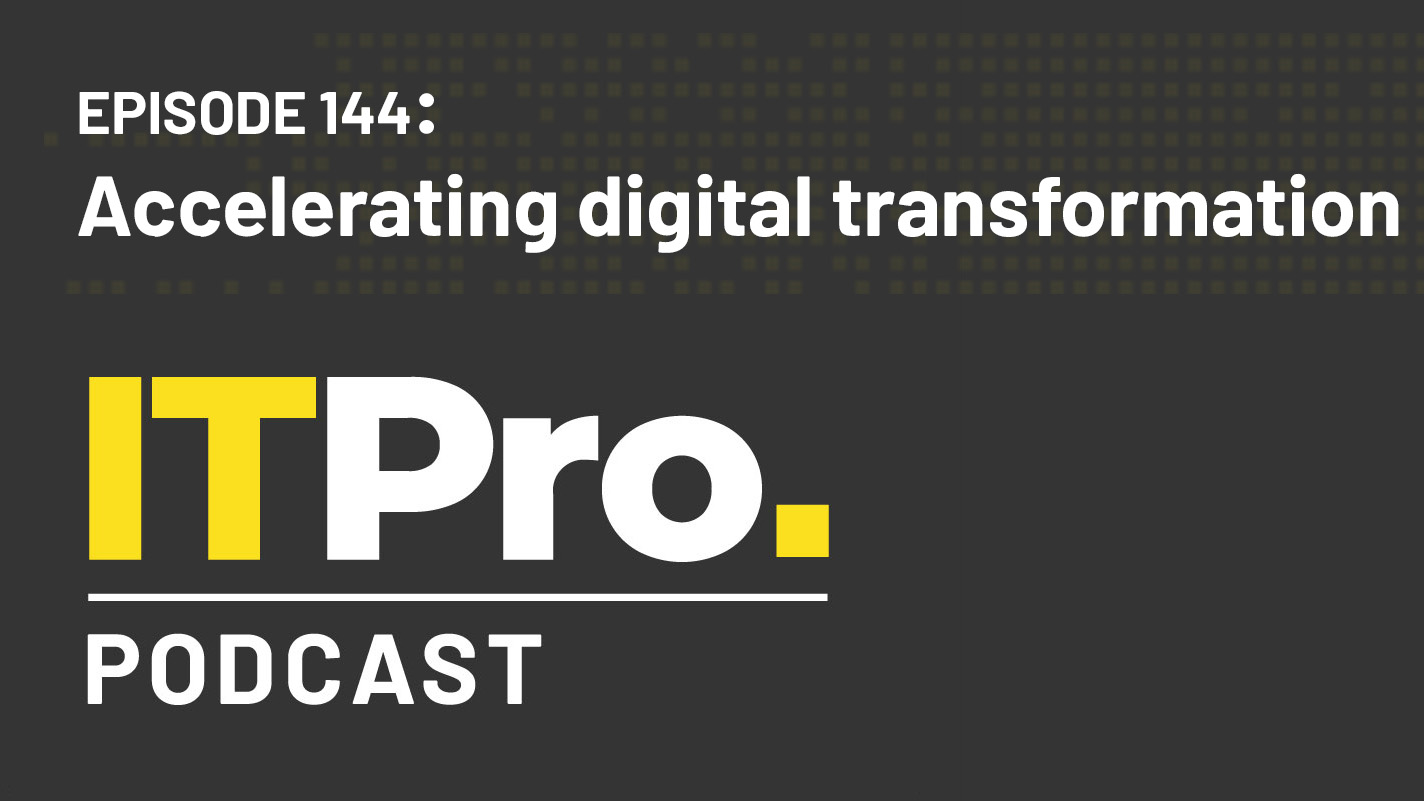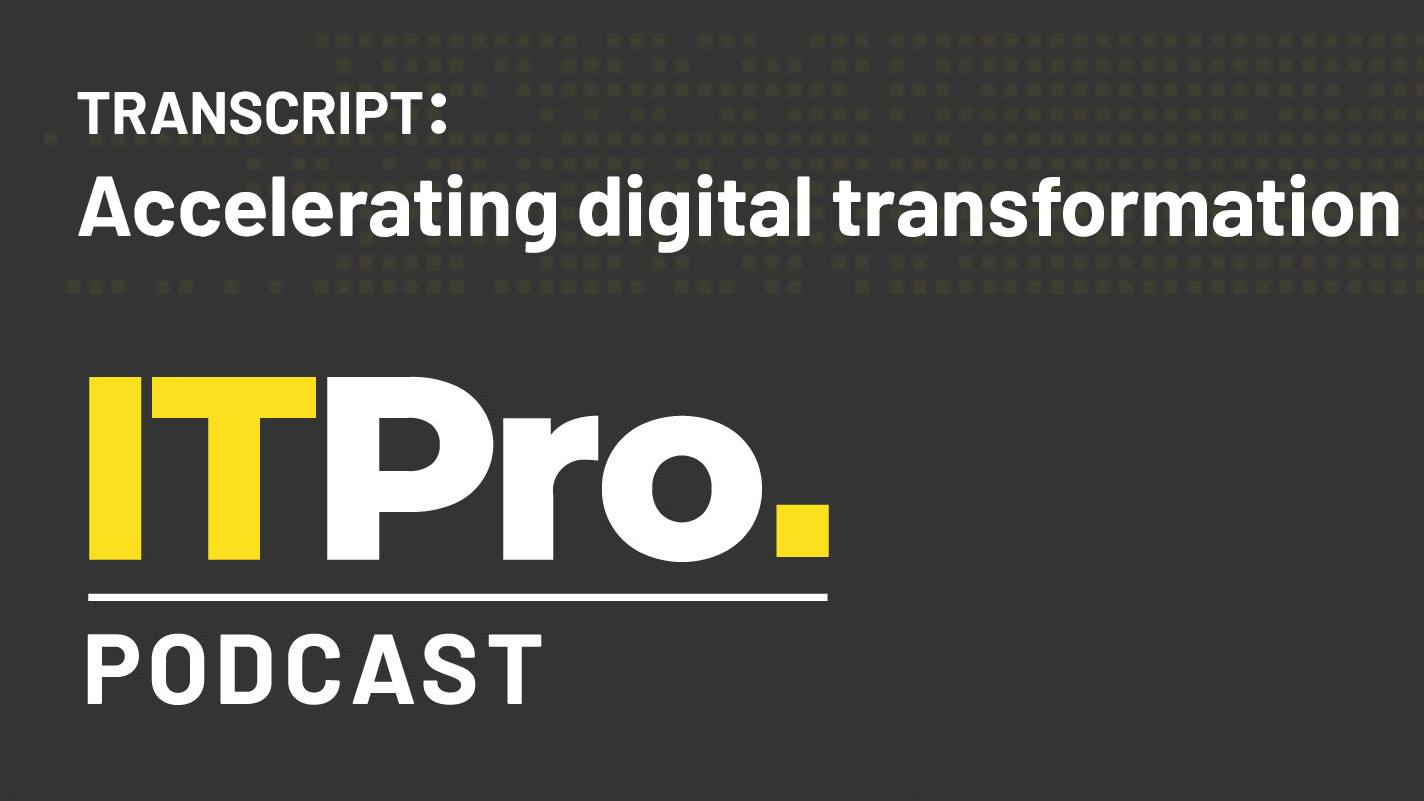What is data management?
The what, why and how of managing the most valuable resource in your organisation

Data management is a key part of any organisation that collects, stores and manages data, especially with the new GDPR guidelines that governs how data must be managed across the whole of Europe. But data management is a much more in-depth principle than just ensuring you adhere to the GDPR.
It also relates to the policies and processes an individual company has in place to ensure everyone is onboard when it comes to getting the best insights into the business, so employees across all departments can use information (and we're not just talking about personal data) to achieve company goals.
Data management also relates to the lifecycle of data and how it moves through an organisation, whether customer-related insights, legacy data that can be used for predictive analytics to see how previous events or actions have impacted a business's running. It covers many steps of the data cycle including acquiring, validating, storing, protecting, and processing data in order to ensure availability, consistency, and relevance of the data for an organisation's users.
As touched upon above, good data management should help ensure compliance to regulations like the GDPR and the UK's own data laws, ensuring a company's approach to using data is legally sound and closing the doors to penalties likely to arise if they're not compliant.
Data management is also becoming a more critical issue for businesses due to the sheer quantity of data we all produce. More and more data means storage management is more of a challenge, as well as sorting out relevant data from duplicates, dark data' and old files. Finding out how to overcome these problems is all part of the digital disruption that virtually all industries are facing.
How is data managed?
The most common way of managing data is by using a master data file; this is known as Master Data Management (MDM). This file defines an asset and its data properties so as to remove vague or rival data policies and give an organisation complete control over its data. This master data is normally managed from a single location.
But data management is about more than just the technology used. For data to be managed effectively and efficiently, it needs to align with the company's business strategy and for there to be a clear idea of what data the company needs to be able to move forward.
Get the ITPro daily newsletter
Sign up today and you will receive a free copy of our Future Focus 2025 report - the leading guidance on AI, cybersecurity and other IT challenges as per 700+ senior executives
What are the best practices in data management?
When managing data to gain business insights, it's best to start by deciding on a business question you want an answer to, then pulling in the data needed to answer that question. Next, consider how that data will be organised and who will be managing it.
Organisations should judiciously consider their data collection procedures and documentation before collecting data. Using data templates should ensure only relevant, usable data will be collected.
Data should also be subject to quality control. This could include double-checking manually-entered data using quality level flags for signifying potential problems, checking format consistency, and including data cleansing methods.
The data should be documented to describe its context, information and parameters, as well as identifying staff who can best use the data. Documentation also involves creating wide-ranging metadata tags to enable users to discover and use the data.
When archiving data, organisations should use a repository that supports data discovery, access, and distribution. Note that with data archiving, there are regulations and policies that need to be taken into consideration.
Advanced analytics are needed as well. The challenge most organisations face is how to best use analytics and integrate it with the business process. Integrating analytics into business processes will ensure a better degree of success in data management projects.
What are the benefits of data management?
Data management is just the initial step towards controlling the large structured and unstructured data volumes that deluge organisations each day. By using data management best practices, organisations can exploit their data and gain insights to make it more useful.
One benefit is improved compliance, because organisations managing their data get greater transparency into their business processes and where their information resides, allowing them to delete or secure data where appropriate. Another benefit is that by monitoring and logging data, firms can find any anomalies that need further investigation, hence improving their security measures.
Effective data management can also help in reducing errors, because the master data provides one single version of truth for all an organisation's most important information. That eliminates the possibility of relying on incorrect information, which ensures any applications built on the master data are more likely to be accurate and effective.
It can also enhance customer engagement and loyalty, because marketing teams can gain insights from the data to tailor services to customers and personalise their interactions.
Because of the storage costs involved with large amounts of unusable or unnecessary data, effective data management can help get costs under control, as well as make the time spent on data collection and sorting much easier for analysts.
Data management can even increase an organisation's revenue, by using that data to optimise business processes and eliminate inefficiencies.

Clare is the founder of Blue Cactus Digital, a digital marketing company that helps ethical and sustainability-focused businesses grow their customer base.
Prior to becoming a marketer, Clare was a journalist, working at a range of mobile device-focused outlets including Know Your Mobile before moving into freelance life.
As a freelance writer, she drew on her expertise in mobility to write features and guides for ITPro, as well as regularly writing news stories on a wide range of topics.
-
 Bigger salaries, more burnout: Is the CISO role in crisis?
Bigger salaries, more burnout: Is the CISO role in crisis?In-depth CISOs are more stressed than ever before – but why is this and what can be done?
By Kate O'Flaherty Published
-
 Cheap cyber crime kits can be bought on the dark web for less than $25
Cheap cyber crime kits can be bought on the dark web for less than $25News Research from NordVPN shows phishing kits are now widely available on the dark web and via messaging apps like Telegram, and are often selling for less than $25.
By Emma Woollacott Published
-
 Protecting CIOs' IT budgets is "paramount" in maintaining business growth
Protecting CIOs' IT budgets is "paramount" in maintaining business growthNews If CIOs are forced to make emergency budget cuts, they should also explain the risks to high level stakeholders so the responsibility is shared
By Zach Marzouk Published
-
 The IT Pro Podcast: Accelerating digital transformation
The IT Pro Podcast: Accelerating digital transformationIT Pro Podcast Implementation is just as important as the value of change
By IT Pro Published
-
 Podcast transcript: Accelerating digital transformation
Podcast transcript: Accelerating digital transformationIT Pro Podcast Read the full transcript for this episode of the IT Pro Podcast
By IT Pro Published
-
 Fit-for-purpose IT infrastructure for digitally determined organisations
Fit-for-purpose IT infrastructure for digitally determined organisationsWhitepaper Your innovation engine: Guiding organisations through change in the new digital economy
By ITPro Published
-
 IT Pro News in Review: CIOs face a challenge, Ofcom's telecom fines, Apple expands Xcode
IT Pro News in Review: CIOs face a challenge, Ofcom's telecom fines, Apple expands XcodeVideo Catch up on the biggest headlines of the week in just two minutes
By IT Pro Published
-
 CIO role has 'drastically changed' over last 24 months, says Lenovo
CIO role has 'drastically changed' over last 24 months, says LenovoNews Globally survey suggests chief information officers have greater influence over their company now the role has expanded beyond technology
By Bobby Hellard Published
-
 How can CIOs help to close the tech skills gap?
How can CIOs help to close the tech skills gap?In-depth The most well-equipped IT leaders can take a number of practical steps to close the divide within their organisations
By Rene Millman Published
-
 What is a virtual CIO (vCIO) and does your business need one?
What is a virtual CIO (vCIO) and does your business need one?In-depth With tech skills in short supply, organisations are turning to temporary expertise to see through critical digital transformation projects
By Mark Samuels Published
